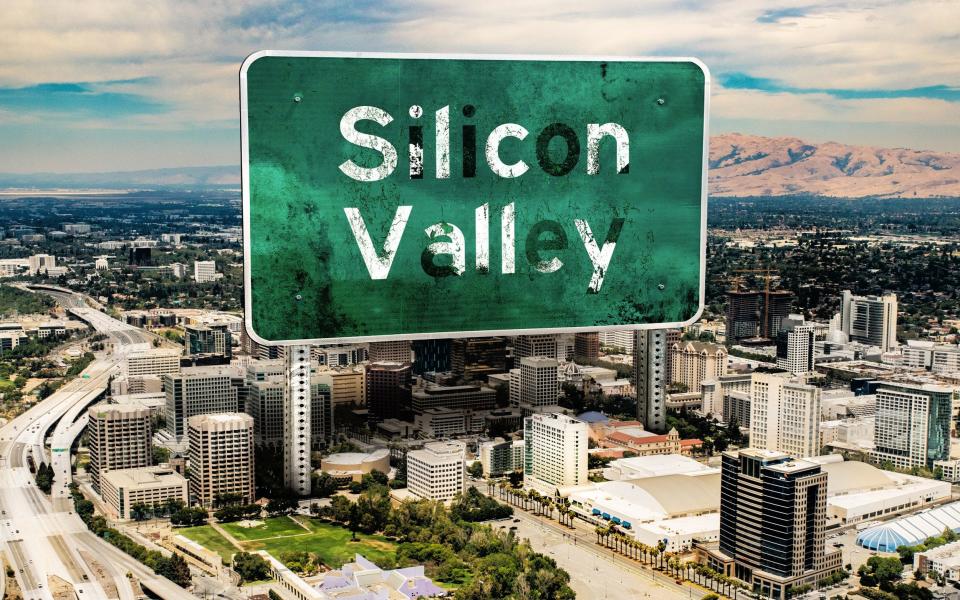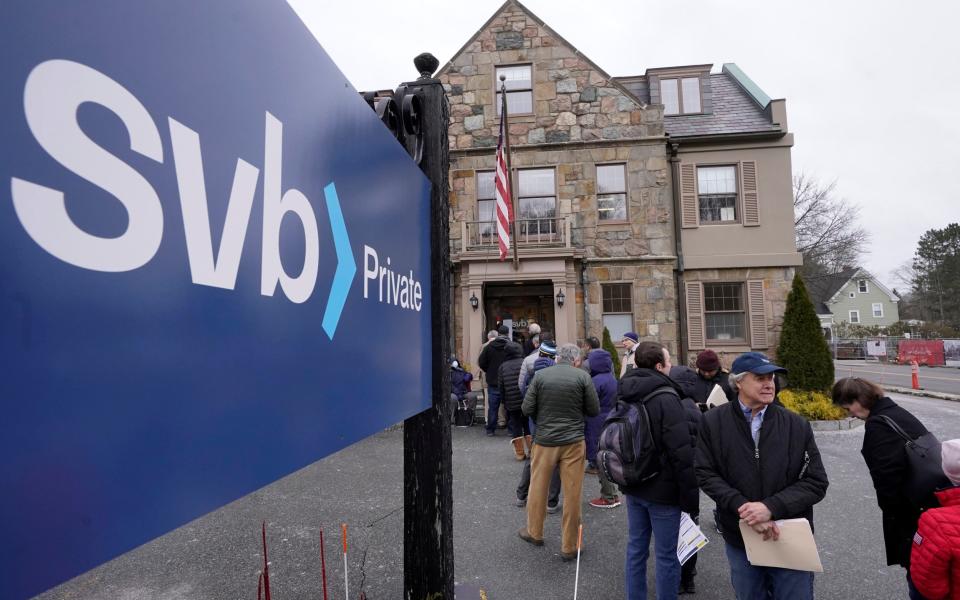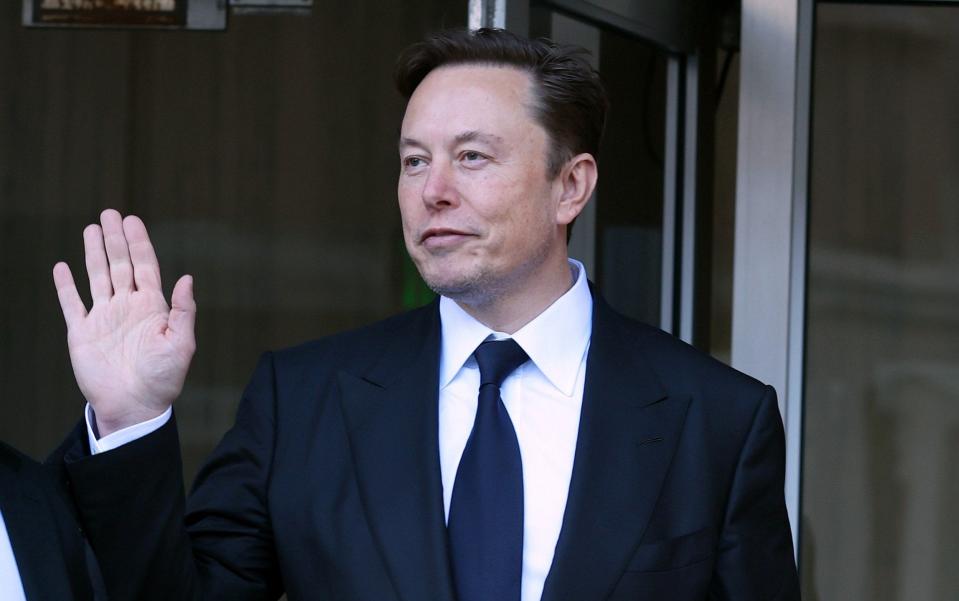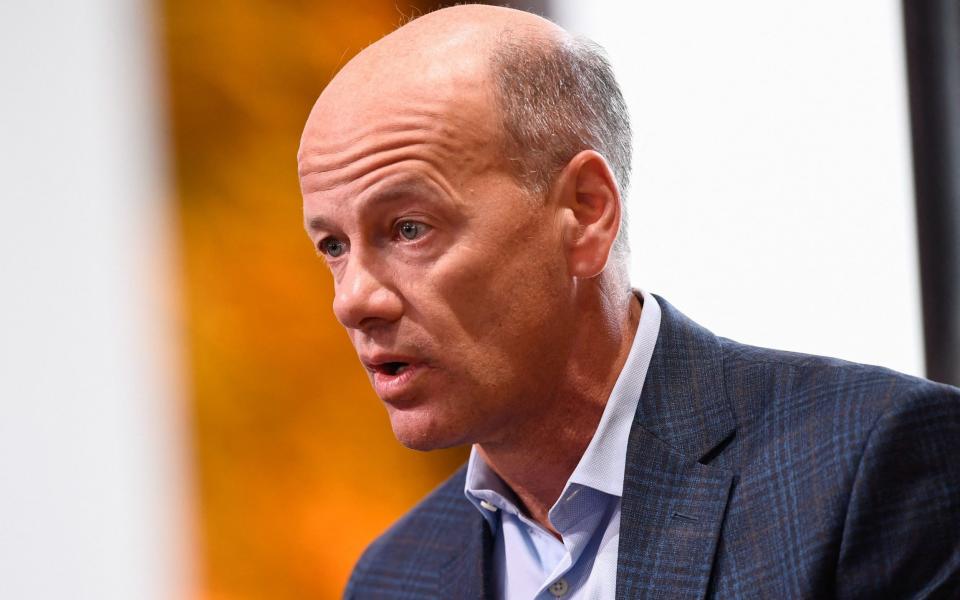From juicy perks to firings on Twitter, the tech bubble is close to bursting

The timing could hardly have been worse. Jeremy Hunt was due to deliver his “Budget for Growth” in four days’ time. But instead of spending the weekend putting the final touches to his sums and speech, the Chancellor and his team were instead embroiled in a frantic 48-hour attempt to save the UK arm of a bank most people had never heard of.
To make matters worse, were it to collapse, the lender’s demise would almost certainly have a devastating effect on the UK’s technology scene – the very sector Hunt has placed front and centre in his attempt to drag the economy out of the doldrums.
The previous Wednesday, Silicon Valley Bank (SVB), the US bank which had built a reputation as the place for start-ups and tech executives to park their cash, announced it was having to sell some of the investments on its balance sheet at a loss and raise new money from investors. Worries about the bank’s financial strength began to circulate at lightning pace on social media and within the hyper-connected Silicon Valley community. More people began to pull their money out. Pretty soon SVB was in the grip of a fully fledged bank run.
While regulators and officials in the US worked round the clock to find a way of containing the fallout from the parent bank’s demise, their peers in Threadneedle Street and Westminster were scrambling to save the bank’s UK arm. SVB UK was a relatively small outpost but the panic which gripped it was just as acute.
In the space of 24 hours before the close of play on the Friday, customers withdrew almost half of the UK bank’s deposit base. It was at this point that the Bank of England stepped in.
The Bank’s new “recover and resolution” regime, put in place since the last financial crisis, means it is now easier to wind down banks. But had SVB UK been declared insolvent, its remaining depositors would have lost the majority of their money, with huge repercussions for some of the UK’s most promising companies. A sale was much the preferred solution.

After a weekend of feverish activity, however, it was clear by the early hours of Monday that talks with banks based in the Gulf would prove fruitless. There was only one candidate both big enough to swallow SVB UK without suffering indigestion, and prepared to do so. At 7am on Monday morning, HSBC announced that it had bought the tech-focused lender for the princely sum of £1. The UK’s start-ups breathed a collective sigh of relief. The deal had only been finalised an hour before. Deposits were protected and, crucially, taxpayers didn’t have to stump up a penny.
The Bank and Hunt’s team at the Treasury have been widely praised. But the reprieve on this side of the Atlantic will do little to dampen the reverberation on the other.
The technology boom is done. SVB’s collapse has dropped the curtain on the era of easy money chasing the next big idea and provided a neat caesura to an extraordinary two-decade period when all roads led to the west coast of America.
Arguably the moment which best indicated that the market froth was at risk of boiling over was the initial public offering of Rivian in November 2021. Despite the fact that the California-based company only made a few thousand electric vehicles a year (and lost money on every single one), it achieved a valuation of $66.5 billion (£55 billion) before soaring to $150 billion within a week.
It marked the top of the market. That month the Nasdaq index in the US, which tracks the share price of the country’s biggest tech firms, peaked, having doubled since the early days of the pandemic. Since then, the index has lost a quarter of its value. Rivian’s shares have plummeted by nearly 90 per cent and the company’s market capitalisation is just $12.4 billion.
On Tuesday, the social media company that used to be known as Facebook but is now called Meta announced it was axing 10,000 jobs. This comes on top of the 11,000 jobs the firm said it was cutting in the autumn. Taken together, the bloodletting adds up to about a quarter of Meta’s total workforce. Tens of thousands of tech workers have been laid off from other companies in the past few months.

Investors have long been venting their frustrations about Meta’s bloated headcount and chief executive Mark Zuckerberg’s seemingly wrong-headed decision to sink billions into building a virtual reality metaverse. Meta is now trying to convince investors that it can pivot into artificial intelligence, which has been generating a crescendo of buzz since ChatGPT launched in November. In a blog post, Zuckerberg wrote: “Last year was a humbling wake-up call. The world economy changed, competitive pressures grew and our growth slowed considerably. At this point, I think we should prepare ourselves for the possibility that this new economic reality will continue for many years.”
That’s a pretty good summary of the situation and all-pervading sense of pessimism that has descended over Silicon Valley. Many in the tech industry managed to persuade themselves that Covid had changed the world forever. They were tricked into doubling down on strategies that were already running out of steam. As it turned out, the pandemic proved to be a last hurrah for the tech boom.
The tide has turned with whiplash speed. In January, a Silicon Valley tech worker posted a video of her “unboxing” the employee appreciation package she’d received from Google, which included a plush blanket and a cold brew coffee machine. “I can’t wait until they send us another one!” she beamed. A week later, the same person posted a video titled: “A Day in My Life Getting Laid Off at Google”. She woke to an “ominous text” from her manager, lost access to her work accounts and spent the day crying.
Nowhere has the carnage been as brutal as at Twitter. Roughly half of the social media firm’s 7,400 employees have been fired. Some of those who have been kept on are working 20-hour days to deliver Elon Musk’s new priorities. The cull was so sudden and slapdash that one staffer reportedly lost access to company systems midway through a team Zoom call, while cuts to Twitter’s human rights and artificial intelligence ethics teams earned a rebuke from the United Nations.
“Our view is that the tech layoffs were an almost inevitable outcome, as companies had to right-size their workforce,” says Kathy Park, the head of business development at Andra Capital, which specialises in late-stage funding. “Unfortunately, while SBV may have accelerated some of this reckoning, it’s really more of a symptom, and we would expect things to continue to get a little bit worse.”

Lots of Silicon Valley companies looked to have been given fresh impetus when Covid started spreading around the world, with millions of people forced to work remotely and sit in front of a screen all day. But once pandemic restrictions were fully lifted, most people went back to living much as they had before. What’s more, the burst of economic activity and creaking supply chains resulted in a huge spike in inflation. Central banks around the world had to raise interest rates at high speed to tame rampant price increases.
The macroeconomic headwinds have delivered a triple whammy of blows to tech firms. An economic slowdown and cost of living crisis mean consumers are tightening the purse strings. Higher inflation means companies that offer profit growth in the future are worth less today. And higher interest rates mean the geyser of investor money is slowing to a trickle.
Venture capital funding in the first three months of the year probably totalled $56.3 billion, according to CB Insights. That’s just a third of the $151 billion invested in the same period last year. “With venture funding becoming even harder to attain and debt availability on the decline courtesy of SVB’s challenges, some of these companies are going to be in a tough spot,” says Anand Sanwal, the chief executive of CB Insights.
“Companies, investors, and boards of directors that haven’t taken the time to seriously consider their expenses are about to be forced to do so. This means that start-up layoffs will intensify in the near term.”
Many people imagine start-up funding as something like Dragons’ Den, with founders struggling to persuade sceptical investors to unlock their closely guarded hoard. But with central bank interest rates pinned to the floor for most of the past decade and a half, and safe investments such as government bonds offering negligible returns, it was investors who became desperate for someone, anyone, to take their money and make it dance.
“In 2019, you by default came into conversations nervous that if you didn’t act quickly, you might be missing something that other people would jump on, and that you’d lose out out,” says Prescott Watson, who has been on both sides of the table as both a partner at San Francisco venture firm RedBlue Capital and the co-founder of an electric vehicle charging start-up. Clever founders learnt to manipulate this anxiety, playing hard to get or acting like they were already close to their funding goals. A delirious atmosphere took hold as venture capitalists, asset managers, pension funds, and vast Middle Eastern sovereign wealth funds poured their cash into both early start-ups and swollen mega-unicorns such as Airbnb, Uber, and the ill-fated WeWork.
For a time in San Francisco you could almost have lived on the generous discounts and free trials offered by dog-walking start-ups, laundry start-ups, fitness class subscription start-ups, and others offering to marginally increase the convenience of a splashy urban lifestyle. The pandemic changed the types of companies enjoying their turn at the money trough but not the underlying dynamic, leading to a bubble that steadily grew throughout 2021.
This appears to have inculcated a sense of entitlement across the sector. The collapse of SVB has lifted the lid on the pervading West Coast corporate culture. Many of the staff were still working remotely right up until the collapse and long after Wall Street banks had ordered their staff back into the offices. This included those at the very top. Greg Becker, the bank’s chief executive, often worked from Hawaii, while the chief risk officer was based in a suburb of Washington, according to a report by the Financial Times.
While this might fly at a tech company, it is harder to justify at a bank. Some critics have suggested the management team had become more focused on social issues than mundane matters such as hedging the bank’s massive interest rate risk. One former executive told the FT: “I almost felt like I was at work on a college campus.”
Big tech has had a good run. Even with recent price falls, Apple, Microsoft, Alphabet (the parent company of Google) and Amazon are all worth over a trillion dollars each and make up four of the top five most valuable companies in the world. Saudi Aramco is the only non-tech company to break into the group.
However, many of the biggest tech companies had started to worry their best years might be behind them before the pandemic struck. The companies that made up what used to be called the FAANG stocks (before they all started to change their names) are undoubtedly here to stay and will likely remain extremely profitable. But they are all now mature companies that will struggle to replicate the crazy growth they enjoyed in their go-go glory years. Hence why valuations are falling.

In fact, part of the reason why some have changed their names is in an attempt to persuade investors they can branch out from their core products and services. So far they’ve struggled. Such concerns are far from new. Everyone has been wondering when Apple is going to produce another epoch-defining product even since Steve Jobs unveiled the iPhone a decade and a half ago.
The answer to that question is almost certainly: never. Instead it is developing services – like TV streaming. Meanwhile, no one knows when, or if, Zuckerberg’s sojourn in the metaverse will pay off or whether Facebook and Instagram can make themselves less uncool to younger users. Google is putting increasing onus on YouTube, which itself is no spring chicken, as the advertising revenue generated by its core search business plateaus.
One of Silicon Valley’s dirty secrets is that none of its collection of big ideas was ever really that big. There has, of course, been plenty of interesting work on quantum computing, artificial intelligence, green technology and the like. But the vast majority of money and brain power being deployed in Silicon Valley was engaged in far more frivolous pursuits.
Many billions of dollars and countless PhDs have been spent trying to figure out how to shop or hail a taxi a little more efficiently, get a pizza delivered a touch more quickly, argue with strangers online, stream box sets on demand or speculate on wholly unnecessary cryptocurrencies. The debates about whether this all added to and subtracted from the sum of human happiness will take some time to unpick.
A number of commentators have speculated that the reason Elizabeth Holmes was able to convince the world that her company Theranos was indeed a breakthrough health technology company with a peak valuation of $10 billion, when in fact it was a massive fraud incapable of most of things it claimed, was that so many people were desperate to believe that Silicon Valley had finally incubated something genuinely useful.
One silver lining around the recent storm clouds is that the shakeout may result in a bit more financial discipline and a de-escalation of the hiring arms race in Silicon Valley. And that may lead to some investment and effort getting diverted into more worthwhile endeavours.
Maybe a bit will make its way to the UK. If so, it could benefit Jeremy Hunt in his oft-stated goal, although it was notable he didn’t use the phrase in this week’s Budget speech, of turning this country into the “next Silicon Valley”.

 Yahoo Finance
Yahoo Finance 